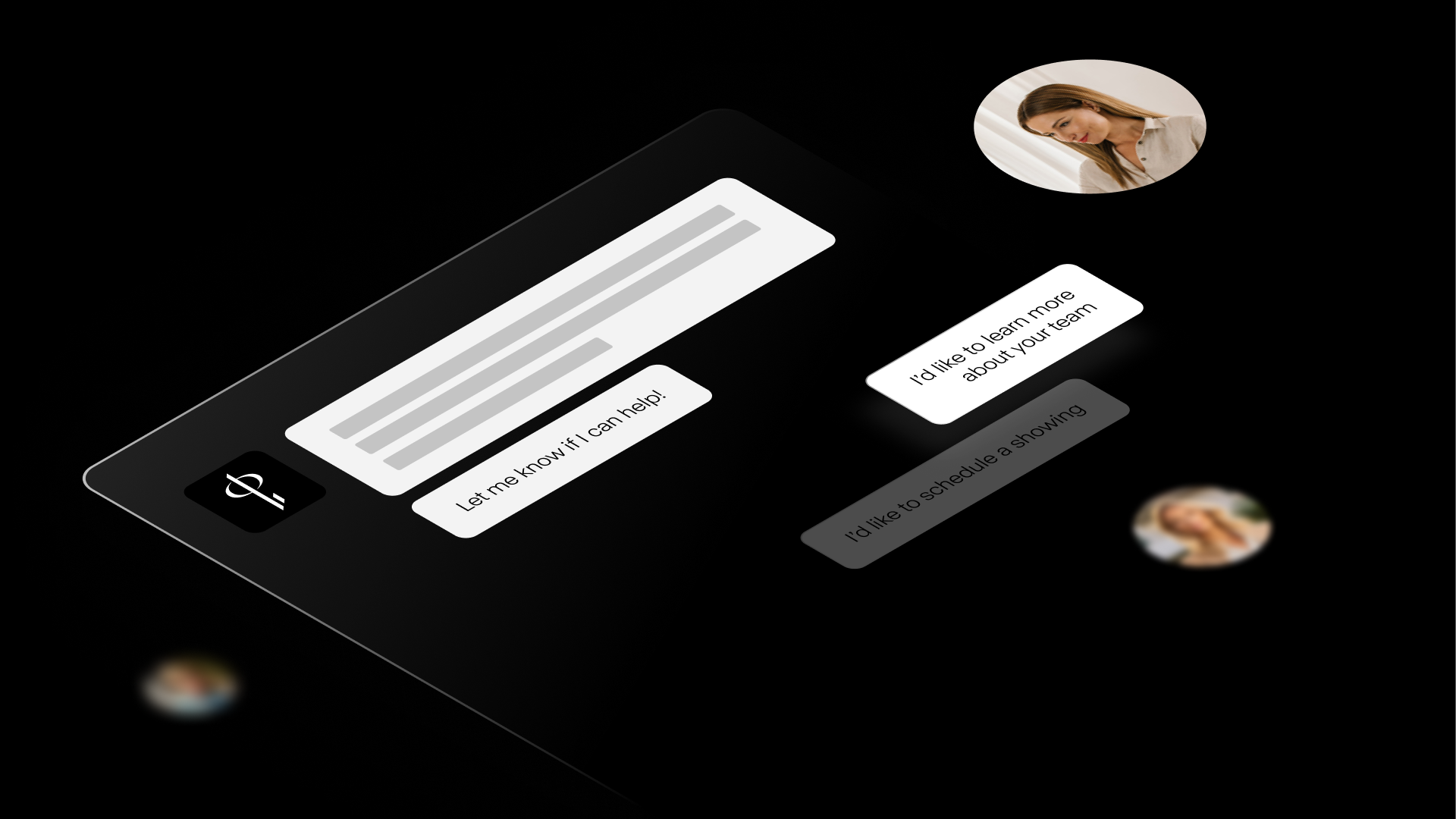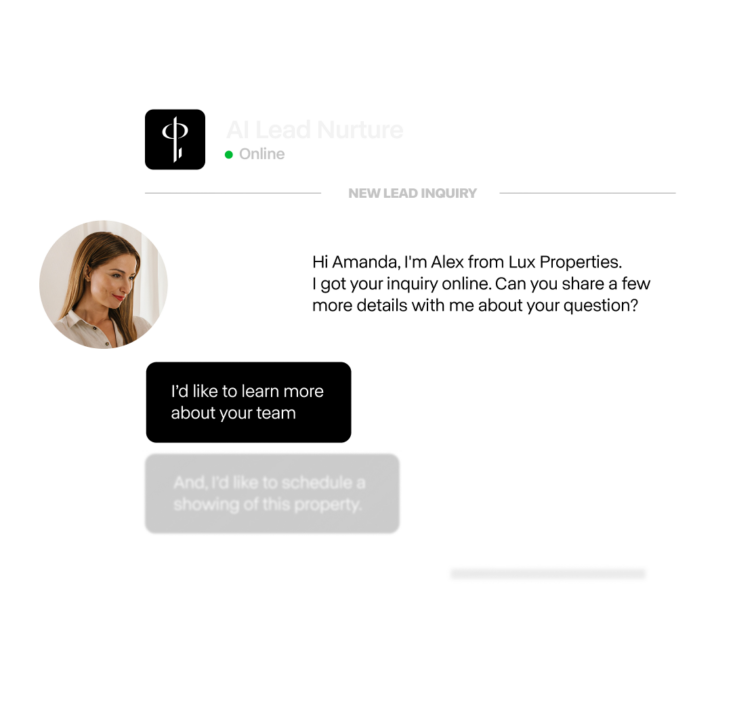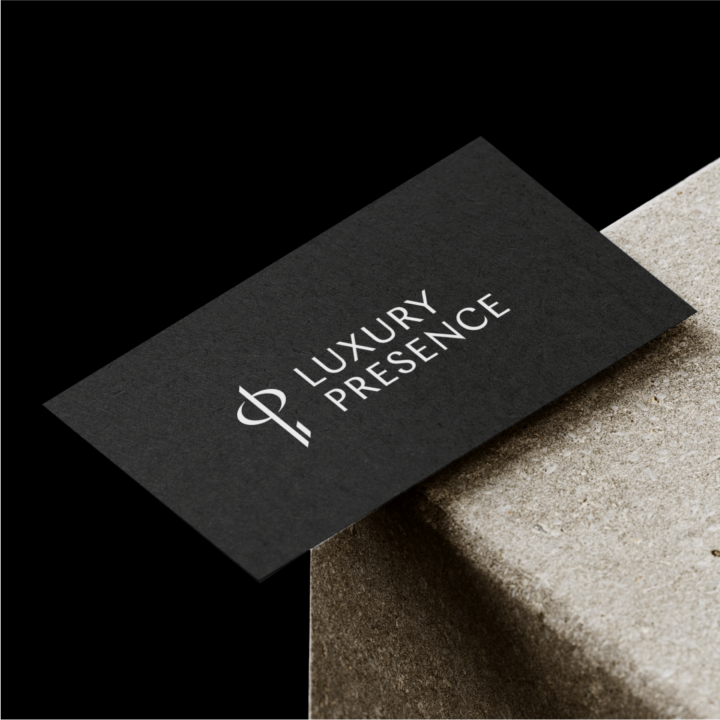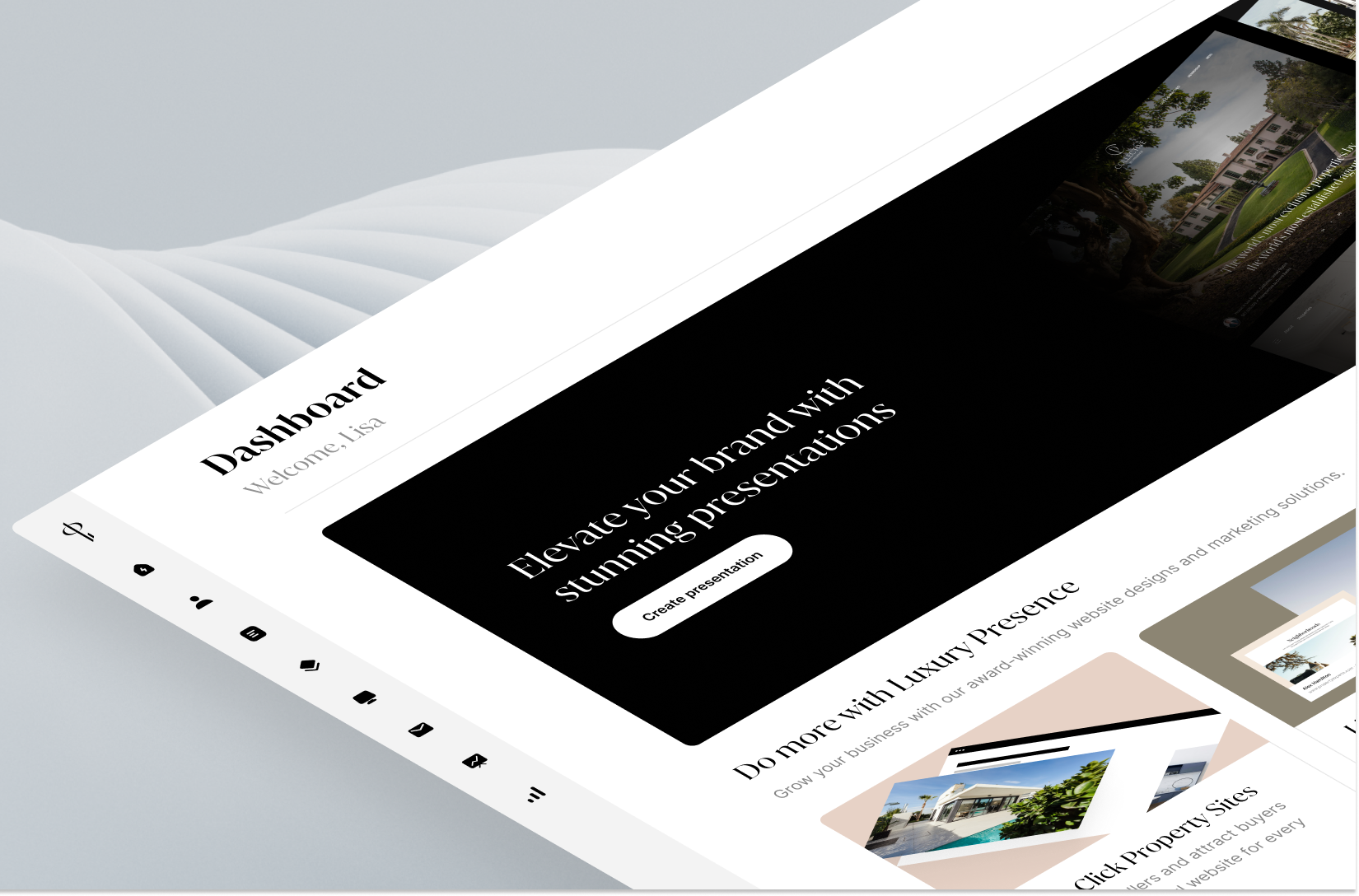Successful agents understand that prompt, personalized communication can make the difference between closing a deal and losing a lead. This guide will walk you through best practices for real estate lead follow-up and help you understand how AI tools, like those from Luxury Presence, can streamline and enhance your follow-up efforts.
Find It Fast
Why lead follow-up is crucial
Leads are the lifeblood of any real estate business, and how you handle follow-up can shape your success. In fact, one study found that following up within a minute of an inquiry improved the chances of converting a lead by a stunning 391%. Delays in communication, on the other hand, often result in missed opportunities.
Additionally, a well-crafted follow-up strategy builds trust, keeps you top of mind, and kicks off a nurturing relationship with potential clients who may not be ready to buy or sell immediately but could in the future.

Best practices for lead follow-up
To optimize your lead follow-up process, it’s essential to adopt a consistent, strategic approach. Here are some key best practices:
1. Respond quickly
Time is of the essence when it comes to lead follow-up. The faster you can respond to an inquiry, the more likely you are to convert that lead into a client. Studies suggest that responding within five minutes gives you the highest chance of success, while waiting even 30 minutes can drastically lower your conversion rate. Automated responses can help you acknowledge inquiries instantly, buying time for a more personalized follow-up later.
2. Personalize your communications
Generic responses can make leads feel unimportant. Take the time to tailor your messages to each prospect’s specific needs. Mentioning details like the property they inquired about, their preferred neighborhoods, or their desired price range shows buyers you’re paying attention and are invested in their search. And personalized follow-ups about a homeowner’s individual property help build rapport and trust with potential sellers.
3. Utilize multiple touchpoints
While emails and phone calls are the most traditional forms of lead follow-up, incorporating a variety of touchpoints — such as text messages, social media outreach, and direct mail — can keep your brand top of mind. Some clients may respond better to one form of communication than another, so it’s important to be flexible and use the channels they prefer.
4. Create a follow-up schedule
Not all leads will be ready to move forward immediately. Establish a follow-up schedule to ensure that you’re consistently checking in with leads over time. This schedule can include a series of touchpoints over several months, with different messages tailored to each stage of the buying or selling process. A well-organized customer relationship management system (CRM) can help you manage and automate these touchpoints, ensuring no lead falls through the cracks.
5. Be persistent but not overbearing
There’s a fine line between pursuing and pestering. Follow-up is important, but avoid bombarding leads with constant messages. Spread out your communications and mix up your approach to keep your follow-up efforts professional and respectful. A good rule of thumb is to follow up no more than twice a week, gradually decreasing the frequency if there is no response.

How AI can streamline your lead follow-up
Artificial intelligence (AI) is revolutionizing the way real estate agents manage their lead follow-up. By leveraging AI tools, you can not only respond to inquiries faster but also more effectively nurture leads over time.
AI-powered lead nurture with Luxury Presence
Luxury Presence’s AI lead nurture tool is designed to help agents manage their lead pipelines more efficiently. This advanced tool analyzes lead behavior, engagement patterns, and other key factors to provide you with personalized insights on when and how to follow up. By utilizing machine learning algorithms, the tool can predict the best times to reach out and suggest tailored messaging to help move leads through the sales funnel.
AI can handle much of the repetitive follow-up work for you, ensuring that no lead is forgotten. For instance, the tool can automatically send follow-up emails at optimal times based on past engagement. This allows you to focus on more high-touch, strategic interactions with clients while maintaining consistent communication with all your leads.
AI Lead Nurture
Luxury Presence’s artificial intelligence tool replies to inbound messages quickly and automatically, increasing lead reply rates to over 50%.

The benefits of AI-driven lead follow-up
Here are some of the key advantages of using AI to follow up with prospects:
- Improved response time: AI tools can automatically respond to inquiries, ensuring immediate engagement with leads even when you’re busy with other activities.
- Data-driven insights: AI can analyze large amounts of data to provide actionable insights on lead behavior, helping you prioritize the most promising leads.
- Personalization at scale: AI allows you to send highly personalized follow-up messages to a large number of leads without sacrificing quality or attention to detail.
Implementing an AI-powered lead follow-up strategy
To get the most out of AI tools, it’s important to integrate it thoughtfully into your lead follow-up strategy.
- Automate initial responses: Use AI to set immediate acknowledgments to deploy when a lead submits their contact information to your website or social media platform. This keeps leads engaged while you prepare a more personalized follow-up.
- Analyze lead behavior: AI tools can assess a lead’s activity — such as time spent on certain pages of your website or engagement with emails — to provide you with insights into their interest level. Focus your time on the most engaged leads.
- Optimize messaging: AI can help craft follow-up messages based on lead data, making it easier to send targeted communication that resonates with each individual.
- Track lead progress: Use AI to monitor how leads interact with your content over time, then adjust your follow-up efforts based on that data.
Closing more deals with smarter follow-up + Luxury Presence
Effective lead follow-up is essential to growing your real estate business. By responding quickly, personalizing your communications, and utilizing multiple touchpoints, you can stay ahead of the competition.
With AI-powered tools like Luxury Presence’s lead nurture platform, you can take your follow-up strategy to the next level — working smarter, not harder, and ultimately closing more deals. Let us show you what we can do.
Luxury Presence can elevate your marketing strategy
Learn how we can help take your real estate business to the next level. Schedule a time to speak with one of our branding experts today.





